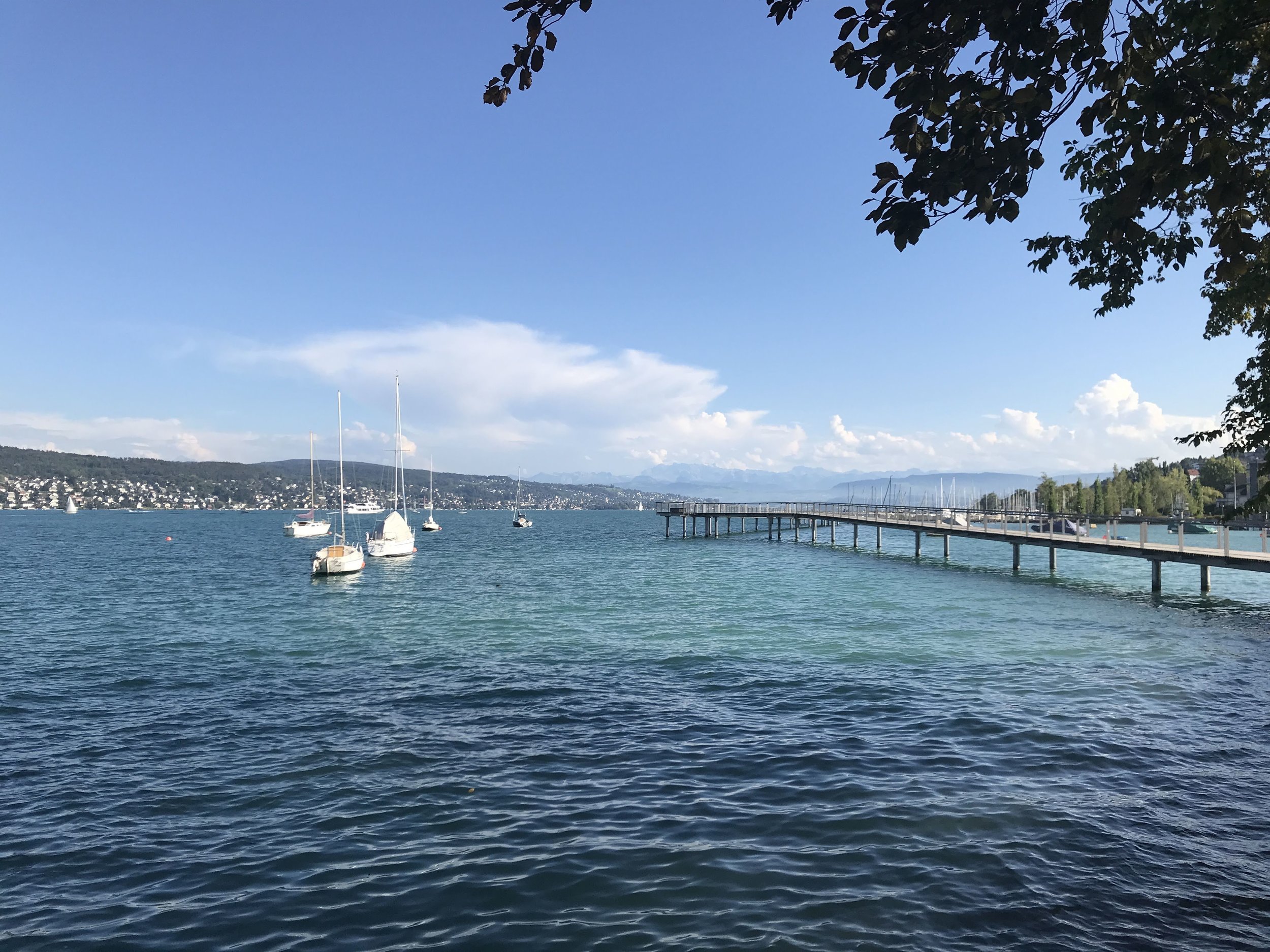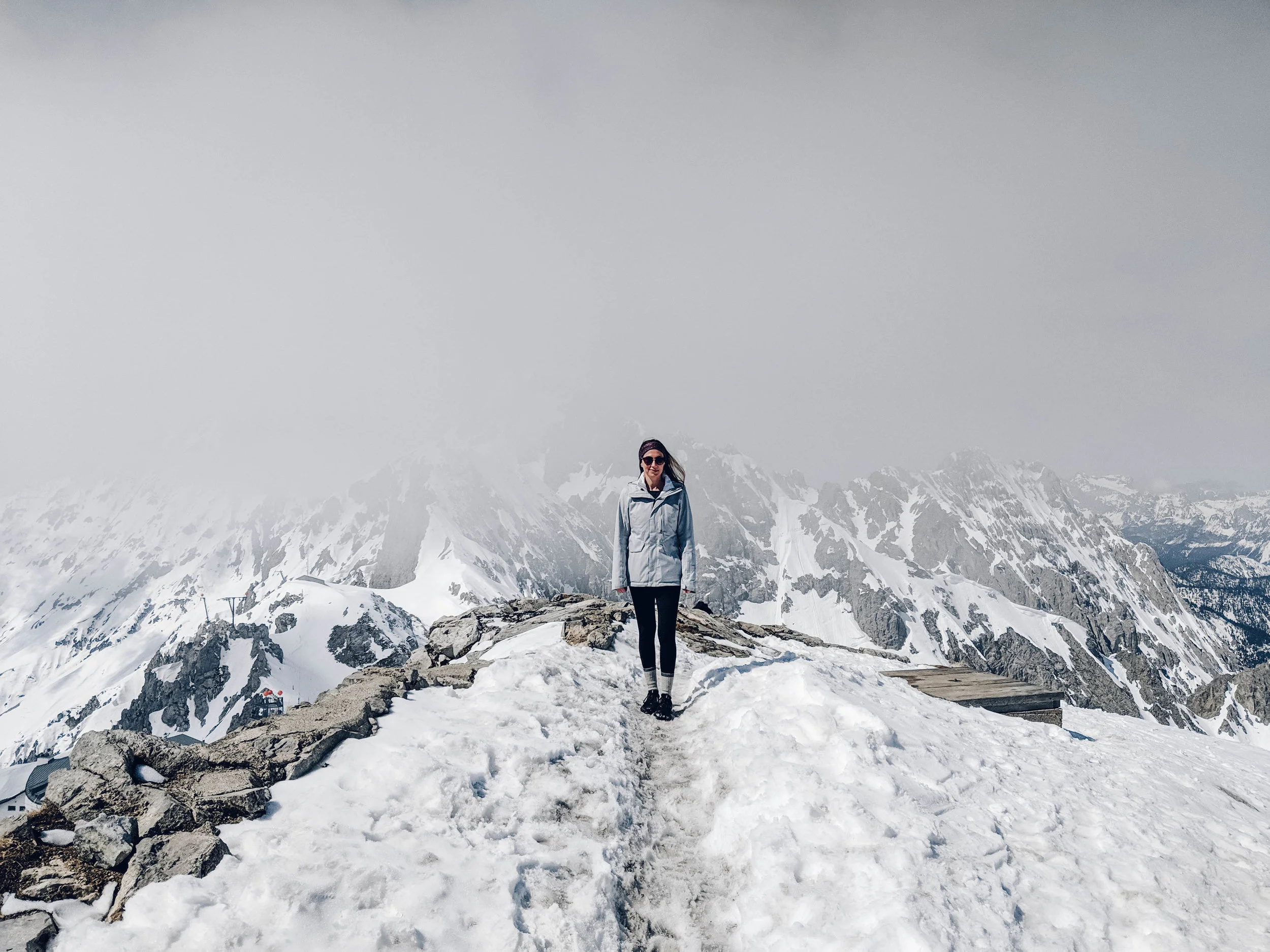Learning German from Bulgarians
While on a hike just a few weeks after moving to Zurich, I commented to Raunaq that I was proud to be “finally” developing an ear for Swiss German. “It’s so weird, though,” I said, “that the Swiss say ‘bitte’ to you as a greeting.” Bitte means please, and while I thought it odd, whenever someone said it to me I went right along with it, responding with a cheery and triumphant “Bitte!” right back.
Raunaq stared at me for a second, then doubled over laughing. “Um, they are saying “Grüezi!” to you, not bitte.” Grüezi, of course, being a casual way to say hello in Swiss German, and thus, making a lot more sense. It turns out I was a crazy American who was essentially shouting “PLEASE!” at everyone on our hike...and at the store, and the post office, and to the train ticket collector. Those two words sounded exactly the same to me. So much for developing that ear.
Maybe that is why I put off learning the language for months. But now, I’m enrolled in a beginner A1 German class with a Russian instructor and two Bulgarians (one also named Alex!). The first class was rough. Actually, rough is putting it lightly. The first class was a train-wreck. Even though I’d been in Zurich for six months - and I’m embarrassed to admit this - I hadn’t picked up any bit of the language at all. Not Swiss German, and definitely not hochdeutsch (High German), which is what is spoken in Germany and the written language in Zurich. The only real German word I could identify with any confidence was wanderweg - hence, the name of this blog.
The first task for the three of us was to each read a basic paragraph aloud, and then introduce ourselves using what we had learned. Ladies first. I stumbled over jumbled letters in a dire attempt to sound them out, the teacher stopping me at every single word to patiently correct my pronunciation, and every time I repeated her it somehow got worse.
My mouth couldn’t form the proper sound for “ch” or “ö” with the umlaut, my brain couldn’t remember that “s” is pronounced like “z” and “v” like “f” and “w” like “v.” I didn’t know any of the numbers, especially once you counted past 12 and have to switch the number order (for example, the translation for the number 26 is six and twenty). Why were these words all so absurdly long? And for the life of me, I could not stop rolling my r’s. My turn to read aloud seemed to stretch painfully long. Thirty minutes in, I wanted to cry.
Bulgarian Alex, looking a little frustrated as I struggled to say “Zurich” properly, tried to help after my fourth unsuccessful attempt. The German “z” is pronounced “ts,” so he gave me an example. “It’s like zitadel, zitadel, zitadel,” he said gruffly. “You know the English word zitadel? Zitadel!” He was saying “citadel,” with a Z instead of a C, in a thick Bulgarian accent. I wanted to yell back, “that’s not even how you pronounce it!” but I was so flustered and confused I couldn’t get out a response.
My cheeks reddened. I felt like a child, missing the ease of Spanish and lyrical drip of Italian, those beautifully familiar foreign languages. Somehow I floundered my way through the rest of the class, and at the end could barely remember English, let alone anything else. Needless to say, the Bulgarians fared much better than I did. When it was finally over, the teacher asked us how we felt about the pace of the class. “It makes sense to go at the pace of the slowest,” both guys responded, looking at me.
I met Raunaq for dinner after, completely discouraged, my confidence in broken shambles. I was certain there was no way I could ever learn this impossible language.
I’m nowhere near good at everything I do, but I have to say, it’s pretty rare that I’m the very worst. I pride myself on being a quick learner. The last time I have been truly been the bottom of the bunch, in recent memory at least, was last May, when I went sea kayaking with a group of friends in Tomales Bay. Would disastrous be too strong of a word if I somehow managed not to drown? Jury’s still out.
German had conquered me that first day. But if being defeated has a silver lining, it is that it can also be an incredible motivator get up, try again, and to do better the next time. The next day, after my moment of despair passed, I got to work.
It’s been over a decade since I’ve learned a new language. Like an atrophied muscle, that part of my brain is weak and needs constant exercise. Languages are tough for me in any sense, and German is a notoriously difficult language to pick up for native English speakers. Its long words, four noun case endings, and unfamiliar pronunciation are enough to give my brain and mouth quite a workout each time I speak.
But I speak as much as I can, in and out of class, even if it makes me feel a little uncomfortable and especially if I know it’s going to be incorrect - I still try, and sometimes even surprise myself. When I’m on the tram, I repeat the names of all the stops after they are announced, and I make Raunaq do the same if he is with me. I’ve started listening to German podcasts and audiobooks.
And most importantly, I’m a little easier on myself, allowing myself to actually be a beginner, to make mistakes, and to laugh when I completely bungle something. It’s been a couple of weeks since that first lesson, and I’m still the slowest, but only by a smidge. My teacher even commented on my “enthusiasm to learn,” which isn’t exactly a compliment on my improvement, but I will take what I can get! It’s always so very humbling, isn’t it, starting from the beginning?
Language and culture are symbiotic, with language influencing culture and culture reflected in the language. As much as I am struggling to learn, I find myself quite grateful for the opportunity to open a window into the world of German. It’s too soon for me to make any sweeping observations, but as with Spanish and Italian, I hope it will help me approach life in this country with new familiarity and insight. Something to work toward in my next six months.
And surprisingly enough, those Bulgarians are helping me along quite a bit. Being non-native English speakers, they actually understand grammar and structure better than I do, and understand why I’m asking certain questions. They still try to help with pronunciation, but thankfully have stopped using “zitadel” as an example - probably because I can finally say “Zurich” as good as anyone else. Bulgarian Alex and I even shared a laugh together when we both said one of our weekend hobbies was “bier trinken.” They reminded me not to take it all too seriously. There may be hope for me just yet. Even if I am learning German with a Bulgarian accent.
**Side note: This is my attempt at learning High German. It’s worth noting that in Zurich they speak Swiss German, which has its own pronunciation, own grammar, and different words. Oh, and it’s only a spoken language, not a written one. Please send help**










